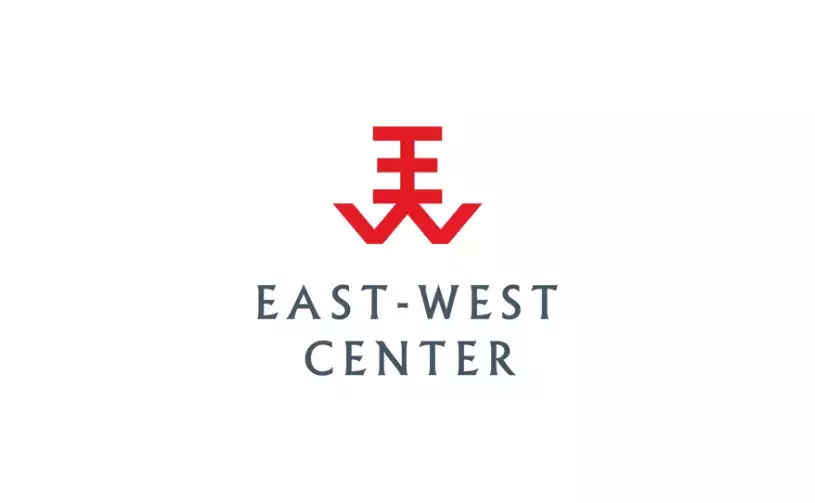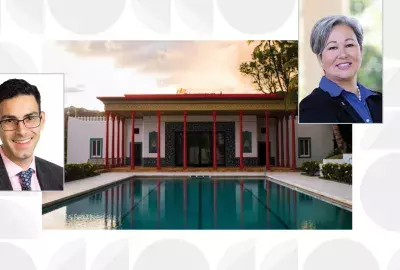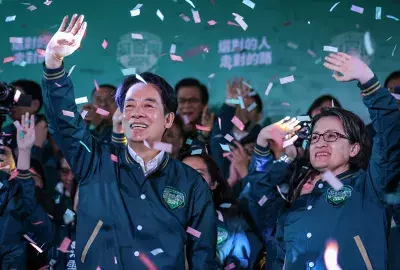Error message

By Marcus Noland
HONOLULU (Feb. 5, 2019)—For more than 70 years, Japan has prospered in a US-led global order. Today, however, there is a perception that the tenets of US foreign policy are changing, implying that Japan will have to take greater responsibility for securing its own national interests and providing global leadership in the future.
In the economics sphere, Japanese policymakers are considering formation of a National Economic Council (NEC), along the lines of the one in the US, to encourage strategic thinking and to better integrate economic and foreign policies. While an NEC-like body could strengthen policymaking in Japan, success will require adaptation to the specifics of the Japanese milieu.
One can conceptualize three models of policymaking. The current government of Japan could be regarded as what Kenneth Juster and Simon Lazarus call a “decentralized” or “multiple advocacy” model. In this scenario, expertise resides in powerful ministries, and interagency coordination is performed by an executive team or lead ministry. The system’s strength is its capable ministries, but its weakness can be lack of inter-ministerial coordination or coherence. In addition, in the absence of bold political leadership ministerial autonomy can be an impediment to change. Therein lies the attraction of a more centralized governance model.
Historically, the US has had such a centralized system, with high-level economic policy led by a strong executive. The advantages of such a system are that it promotes coordination, coherence, adherence to the president’s vision, and a joining of policy and political messaging and outreach. The disadvantages are that it devalues cabinet departments and by doing so can sacrifice specific expertise, reduce innovation and creativity, and even impede departmental support for the president.
A third approach would be an ad hoc model, which, according to Juster and Lazarus, “eschews formal structures in favor of flexible, case-by-case mechanisms.” The strength would be to grant the leader maximum autonomy; the weakness would be the likelihood of stirring up resentment and distrust among government agencies not included in the policymaking process in areas in which they have an interest.
In Japan today, efforts to increase centralized power may be a fraught process or even engender pushback. For example, a 2010 attempt by the government of Prime Minister Yukio Hatoyama to create a National Strategy Unit, modeled after British Prime Minister Tony Blair’s Strategy Unit, fell victim to ministerial opposition and a divided Diet. This experience suggests that an administration seeking to create a new system needs to introduce a formal, legal change in government structure in order to elicit buy-in from key stakeholders.
How does the National Economic Council Work in the US?
The US National Economic Council was created by executive order in January 1993, immediately after the end of the Cold War. Key thinking at the time was that economic issues would play a more prominent role than in the past and that there was a need for better economic policies and better integration between economics and traditional diplomacy.
The NEC exists in parallel with the National Security Council (NSC), although the two bodies differ in some significant ways. While the NEC is smaller and less hierarchical than the NSC, it is considerably larger and more powerful than its closest equivalent in the Japanese system, the Council on Economic and Fiscal Policy.
Some NEC chairs have tended to act as honest-broker managers as they coordinate cabinet departments, while others have sought to exercise greater personal influence on policy. The relationship between the NSC and NEC has reflected these different tendencies as well. Whether as honest broker or rival of cabinet members, personalities and trust count. The style of the president and his chief of staff also matter, especially if the NEC has an activist chair.
Staffing is a key issue. Historically, NSC senior directors are a mix of people detailed from cabinet departments and “outsiders” such as academics or staff from think tanks. Directors, the next bureaucratic tier down, are almost all career staff from other agencies and often retain their positions across administrations.
The NEC staff are typically younger and much more likely to be “outsiders,” recruited from think tanks, political campaigns, or Capitol Hill. In essence, these are young, ambitious superstars working long hours. Whether the style of the NEC chair is closer to the “air traffic control” or “activist” model affects the composition of the staff. A marker of this is the percentage of economics PhDs on the NEC staff, which has ranged widely.
Both the NSC and NEC staffing patterns have something to recommend them: Seconded staff may have more knowledge of the bureaucracy than newcomers, but they may be less innovative, and their ultimate institutional allegiances may be questioned.
Veteran policymakers agree that there tends to be greater structure in the policymaking process when the issues are international rather than domestic. International policies tend to be addressed by a core group of departments—State, Defense, and Treasury—that are accustomed to working together, with agencies such as the Commerce Department and the office of the United States Trade Representative (USTR) playing a prominent role on trade issues.
In contrast, domestic policymaking has been characterized by less regular and less structured interactions. The upshot is that the value-added of the NEC might be higher on the domestic side, where agencies are not so used to working together and the payoffs to improved policy integration, outreach, and political messaging might be higher.
What does the US experience mean for Japan?
There is a pervasive sense that the government of Japan is not as responsive to its international environment as it could be. A corollary is a desire to increase the prime minister’s real political power to enable more decisive, pro-active policymaking.
As Japan becomes more of a “normal country,” with greater foreign-policy and defense responsibilities, issues of inter-ministerial coordination will become more salient. This process will be accelerated if the US continues to abdicate regional leadership and thorny issues with broad implications are thrust onto the Japanese government. Such developments would auger for enhanced inter-ministerial coordination.
That said, the Japanese government needs to think carefully about importing the NEC model to Japan—or, for that matter, creating an Independent Fiscal Institution (IFI) as has been recommended by the International Monetary Fund. The US has a much deeper bench of civil-society organizations capable of providing potential staff for such an organization. In the absence of a cohort of capable “outsiders,” such an agency would be more likely to rely on people recruited from existing ministries. Their mental frameworks and career allegiances may be with their ministries.
The risk is that rather than providing a breath of fresh air, a Japanese NEC (or IFI) could be subject to bureaucratic capture, simply providing a mechanism to extend the power of the ministry that provides most of its staff.Marcus Noland is a Non-Resident Senior Fellow at the East-West Center and Executive Vice President and Director of Studies at the Peterson Institute for International Economics in Washington, DC. He can be reached at [email protected].
Download a pdf version of this Wire article.
Since this East-West Wire was released, Japan's ruling Liberal Democratic Party (LDP) has decided to propose the establishment of a "National Economic Council" (NEC), as Dr. Noland discussed. This decision has been covered in the media in Japanese and English.
##
The East-West Wire is a news, commentary, and analysis service provided by the East-West Center in Honolulu. All or any part of the Wire content may be used by media with attribution to the East-West Center or the person quoted. To receive Wire articles via email, subscribe here. For links to all East-West Center media programs, fellowships and services, see EastWestCenter.org/Journalists.
The full list of East-West Wires produced by the Research Program is available on the East-West Center website at EastWestCenter.org/Research-Wire. For more on the East-West Center Research Program, see EastWestCenter.org/Research.
The East-West Center promotes better relations and understanding among the people and nations of the United States, Asia, and the Pacific through cooperative study, research, and dialogue.
Series editors:
Derek Ferrar
[email protected]
Sidney B. Westley
[email protected]
By Marcus Noland
HONOLULU (Feb. 5, 2019)—For more than 70 years, Japan has prospered in a US-led global order. Today, however, there is a perception that the tenets of US foreign policy are changing, implying that Japan will have to take greater responsibility for securing its own national interests and providing global leadership in the future.
In the economics sphere, Japanese policymakers are considering formation of a National Economic Council (NEC), along the lines of the one in the US, to encourage strategic thinking and to better integrate economic and foreign policies. While an NEC-like body could strengthen policymaking in Japan, success will require adaptation to the specifics of the Japanese milieu.
One can conceptualize three models of policymaking. The current government of Japan could be regarded as what Kenneth Juster and Simon Lazarus call a “decentralized” or “multiple advocacy” model. In this scenario, expertise resides in powerful ministries, and interagency coordination is performed by an executive team or lead ministry. The system’s strength is its capable ministries, but its weakness can be lack of inter-ministerial coordination or coherence. In addition, in the absence of bold political leadership ministerial autonomy can be an impediment to change. Therein lies the attraction of a more centralized governance model.
Historically, the US has had such a centralized system, with high-level economic policy led by a strong executive. The advantages of such a system are that it promotes coordination, coherence, adherence to the president’s vision, and a joining of policy and political messaging and outreach. The disadvantages are that it devalues cabinet departments and by doing so can sacrifice specific expertise, reduce innovation and creativity, and even impede departmental support for the president.
A third approach would be an ad hoc model, which, according to Juster and Lazarus, “eschews formal structures in favor of flexible, case-by-case mechanisms.” The strength would be to grant the leader maximum autonomy; the weakness would be the likelihood of stirring up resentment and distrust among government agencies not included in the policymaking process in areas in which they have an interest.
In Japan today, efforts to increase centralized power may be a fraught process or even engender pushback. For example, a 2010 attempt by the government of Prime Minister Yukio Hatoyama to create a National Strategy Unit, modeled after British Prime Minister Tony Blair’s Strategy Unit, fell victim to ministerial opposition and a divided Diet. This experience suggests that an administration seeking to create a new system needs to introduce a formal, legal change in government structure in order to elicit buy-in from key stakeholders.
How does the National Economic Council Work in the US?
The US National Economic Council was created by executive order in January 1993, immediately after the end of the Cold War. Key thinking at the time was that economic issues would play a more prominent role than in the past and that there was a need for better economic policies and better integration between economics and traditional diplomacy.
The NEC exists in parallel with the National Security Council (NSC), although the two bodies differ in some significant ways. While the NEC is smaller and less hierarchical than the NSC, it is considerably larger and more powerful than its closest equivalent in the Japanese system, the Council on Economic and Fiscal Policy.
Some NEC chairs have tended to act as honest-broker managers as they coordinate cabinet departments, while others have sought to exercise greater personal influence on policy. The relationship between the NSC and NEC has reflected these different tendencies as well. Whether as honest broker or rival of cabinet members, personalities and trust count. The style of the president and his chief of staff also matter, especially if the NEC has an activist chair.
Staffing is a key issue. Historically, NSC senior directors are a mix of people detailed from cabinet departments and “outsiders” such as academics or staff from think tanks. Directors, the next bureaucratic tier down, are almost all career staff from other agencies and often retain their positions across administrations.
The NEC staff are typically younger and much more likely to be “outsiders,” recruited from think tanks, political campaigns, or Capitol Hill. In essence, these are young, ambitious superstars working long hours. Whether the style of the NEC chair is closer to the “air traffic control” or “activist” model affects the composition of the staff. A marker of this is the percentage of economics PhDs on the NEC staff, which has ranged widely.
Both the NSC and NEC staffing patterns have something to recommend them: Seconded staff may have more knowledge of the bureaucracy than newcomers, but they may be less innovative, and their ultimate institutional allegiances may be questioned.
Veteran policymakers agree that there tends to be greater structure in the policymaking process when the issues are international rather than domestic. International policies tend to be addressed by a core group of departments—State, Defense, and Treasury—that are accustomed to working together, with agencies such as the Commerce Department and the office of the United States Trade Representative (USTR) playing a prominent role on trade issues.
In contrast, domestic policymaking has been characterized by less regular and less structured interactions. The upshot is that the value-added of the NEC might be higher on the domestic side, where agencies are not so used to working together and the payoffs to improved policy integration, outreach, and political messaging might be higher.
What does the US experience mean for Japan?
There is a pervasive sense that the government of Japan is not as responsive to its international environment as it could be. A corollary is a desire to increase the prime minister’s real political power to enable more decisive, pro-active policymaking.
As Japan becomes more of a “normal country,” with greater foreign-policy and defense responsibilities, issues of inter-ministerial coordination will become more salient. This process will be accelerated if the US continues to abdicate regional leadership and thorny issues with broad implications are thrust onto the Japanese government. Such developments would auger for enhanced inter-ministerial coordination.
That said, the Japanese government needs to think carefully about importing the NEC model to Japan—or, for that matter, creating an Independent Fiscal Institution (IFI) as has been recommended by the International Monetary Fund. The US has a much deeper bench of civil-society organizations capable of providing potential staff for such an organization. In the absence of a cohort of capable “outsiders,” such an agency would be more likely to rely on people recruited from existing ministries. Their mental frameworks and career allegiances may be with their ministries.
The risk is that rather than providing a breath of fresh air, a Japanese NEC (or IFI) could be subject to bureaucratic capture, simply providing a mechanism to extend the power of the ministry that provides most of its staff.Marcus Noland is a Non-Resident Senior Fellow at the East-West Center and Executive Vice President and Director of Studies at the Peterson Institute for International Economics in Washington, DC. He can be reached at [email protected].
Download a pdf version of this Wire article.
Since this East-West Wire was released, Japan's ruling Liberal Democratic Party (LDP) has decided to propose the establishment of a "National Economic Council" (NEC), as Dr. Noland discussed. This decision has been covered in the media in Japanese and English.
##
The East-West Wire is a news, commentary, and analysis service provided by the East-West Center in Honolulu. All or any part of the Wire content may be used by media with attribution to the East-West Center or the person quoted. To receive Wire articles via email, subscribe here. For links to all East-West Center media programs, fellowships and services, see EastWestCenter.org/Journalists.
The full list of East-West Wires produced by the Research Program is available on the East-West Center website at EastWestCenter.org/Research-Wire. For more on the East-West Center Research Program, see EastWestCenter.org/Research.
The East-West Center promotes better relations and understanding among the people and nations of the United States, Asia, and the Pacific through cooperative study, research, and dialogue.
Series editors:
Derek Ferrar
[email protected]
Sidney B. Westley
[email protected]
East-West Wire
News, Commentary, and Analysis
The East-West Wire is a news, commentary, and analysis service provided by the East-West Center in Honolulu. Any part or all of the Wire content may be used by media with attribution to the East-West Center or the person quoted. To receive East-West Center Wire media releases via email, subscribe here.
For links to all East-West Center media programs, fellowships and services, see www.eastwestcenter.org/journalists.







